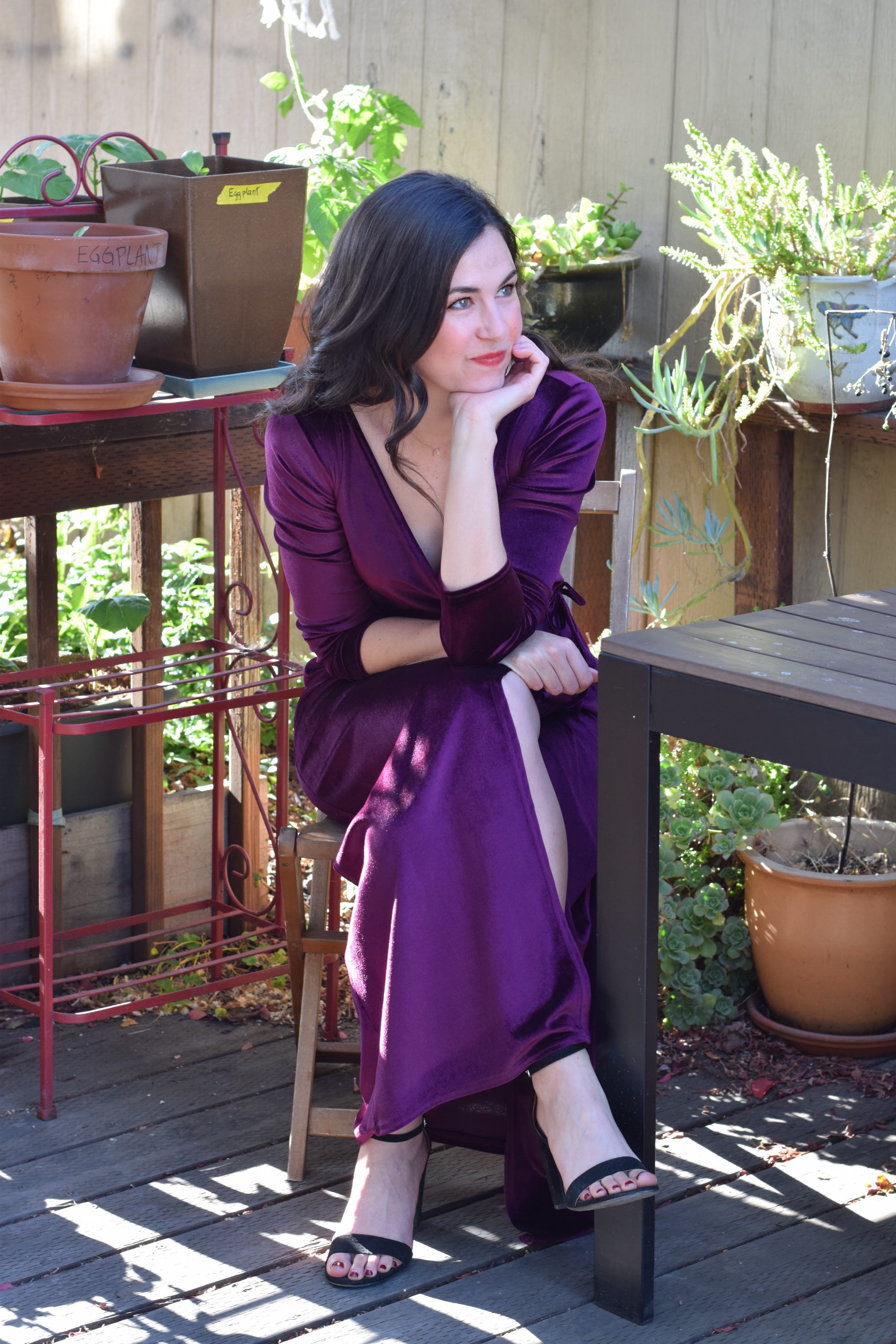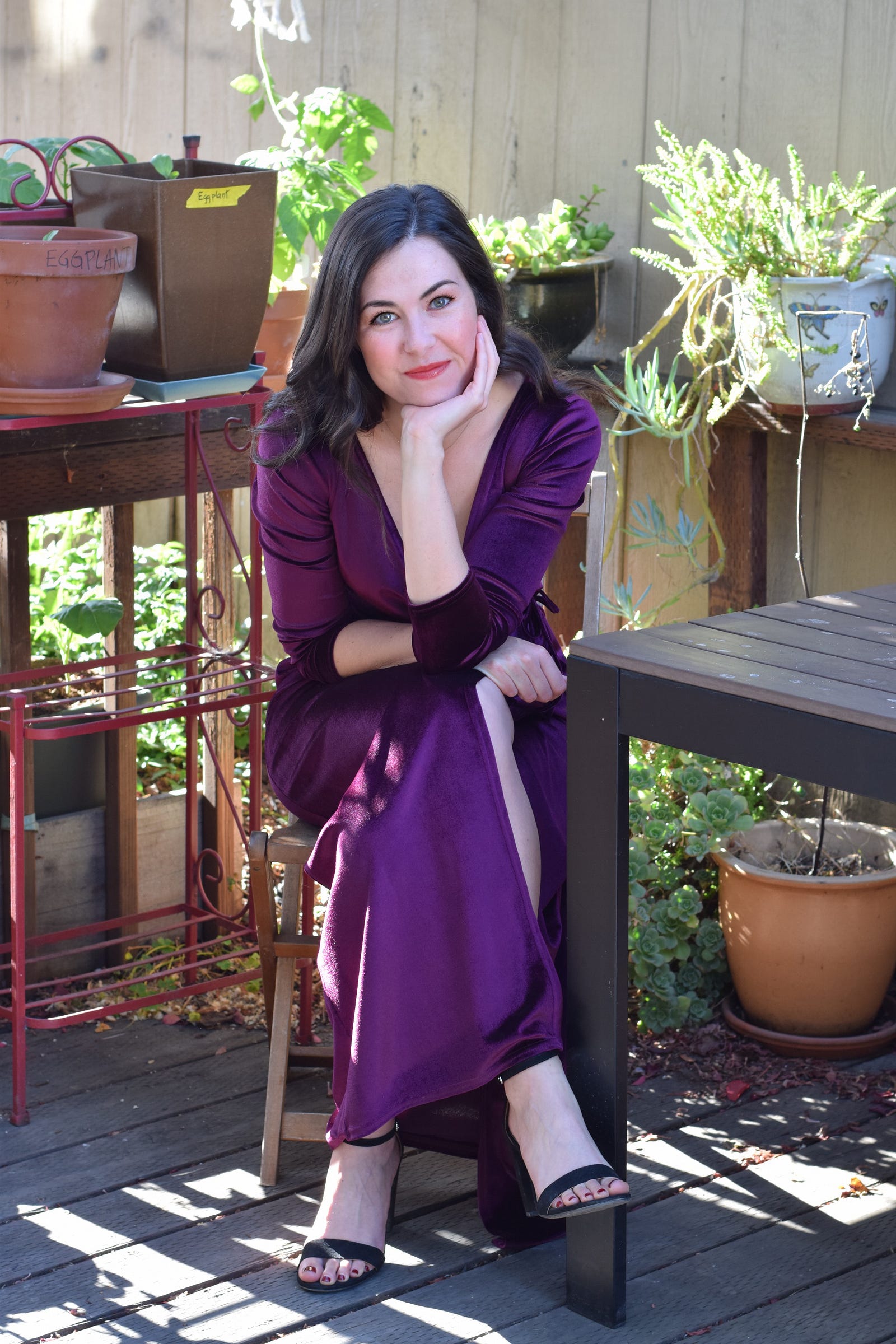Technology has become a crucial part of almost every aspect in life. Today, it’s almost impossible to picture life without it. It makes our lives easier. Helps us do things faster and keeps us connected, so much so that it has made it possible to find and build your own community of likeminded people even if they’re scattered halfway across the world. This sentiment especially holds true during challenging and uncertain times such as the pandemic we’re going through. The impact it has had on society has been quite remarkable and needless to say of utter importance for its progress and evolution. You don’t need to be a tech geek in order to understand the role it plays in today’s world, nor should you be one in order to write about it. You just need to be curious, just like our next cool face of Bastet Noir.
‘’Before the 20th century, there was no such thing as standard sizing. You had clothes made to fit your exact size and shape. So I love the idea that new technologies can return us to this more bespoke way of buying clothes’’
Arielle Pardes, a senior writer at WIRED is a dedicated, tenacious, hard working woman, raised by a single mother and someone who has never been particularly interested in technology. Not from a hardware perspective, at least. Tech gear was never really her thing. Instead, her interest to pursue technology as a topic was piqued from how deep the roots of tech go and how it changes the world around us for better or worse. Her innate curiosity had catapulted her to become one of the most relevant and influential voices writting for publications like VICE. Her highly aclaimed reporting covers the relationship between us as humans and the tech we build. Her articles are witty, well written, easy to read, always insightful and informative. So it seems like we found just the right person to talk about, what usually keeps us up at night, which is the future of custom-made and digital fashion. Read on, as this extraordinary woman shares invaluable pieces of advice for everyone who wants to follow in her footsteps, as well as the books and essays that has had a tremendous impact on shaping her personality.
Who is Arielle Pardes?
I’m a senior writer for WIRED in San Francisco.
What’s your morning routine like?

Don’t @ me, but… I think the morning routine is totally over-mythologized. Waking up at dawn, running first thing in the morning, writing three pages longhand before getting out of bed — I’ve tried it all, and none of it works for me. I just don’t feel like my complete self in the morning. The one thing I try to do before starting work is go on a walk, usually in silence, while I come to terms with my existence. I’ve been walking three miles in the morning lately and that’s the closest thing I have to a routine right now. But really, my mind is at its best in the evening and I try to respect that. I do all of my best writing after dark.
You’re currently a senior writer for WIRED, covering technology topics. How did you end up at WIRED? Any tips and tricks for those who want to follow in your footsteps?
I don’t have a very strong background in technology. Before WIRED, I was an editor at VICE, where I helped build out the coverage of immigration issues, among other things. I’m much more of a generalist than many of my colleagues. I made a very conscious pivot toward technology journalism several years ago because it’s become impossible to write about anything today without acknowledging the role of tech. Politics, energy, food, culture — these are all technology stories in some part. I wanted to write about how the world was changing, and WIRED does that better than any other publication.
When I interviewed to work for WIRED, I remember our editor-in-chief asking me about my favorite gadget. I was like, “I don’t have one!” It was January 2017 and I was still using a decrepit iPhone 5. It was so old that the Home button had stopped working and it couldn’t hold a charge for more than a few hours. I really have no appetite for hardware or tech specs. But I love understanding technology as a vehicle for change, and making sense of its impact on people and on society at large. In most of my stories, technology is a major part of the plot, but it’s not the main character.
Giving advice on being a writer is a little strange, because it’s both a career and an identity. If you want my job, there are a million different pathways that might get you there — journalism school, freelancing, starting as a cub reporter and working your way up. If you want to be a writer, though, you just have to start writing.
As a custom-made, no waste fashion label, we’re currently experimenting with bringing in more digital solutions to our website as we’re implementing a virtual try-on app, working on establishing partnerships with fashion gaming apps and introducing a more user-friendly custom-made add-on. Being a tech writer, we’re curious to hear your opinion on digital fashion? What do you think the future holds?
We often forget that standard sizing is a fairly modern invention. Before the 20th century, there was no such thing: You had clothes made to fit your exact size and shape. So I love the idea that new technologies can return us to this more bespoke way of buying clothes — both on the consumer’s side, through things like virtual fitting rooms and 3D modeling programs for fit; and on the manufacturing side, through things like 3D printers for making custom clothes and shoes. Historically, the clothing industry has served a certain body type, and many of these technologies represent a shift toward greater diversity and democratization in fashion. I’m also very bullish on clothing rental services, like Rent the Runway, and platforms for buying secondhand, like Poshmark. I’d love to have a capsule wardrobe of a few classic pieces that are tailor-made for me and then rotate through rental pieces, and it seems like Silicon Valley is down with that dream.
Three things you wish you knew before starting out…
Read as much as you can, write as much as you can, and never let your pride keep you from asking the stupid question — it’s often the most important one to ask.
Biggest failure/setback in life and what you’ve learnt from it?
I grew up very low-income with a single mom. I had to work for everything; I’ve had a job since I was 15. I actually started freelancing in college because I needed the money to pay my rent, and I realized I could make more per hour writing for small publications than I could at either of my on-campus jobs. It turned out to be a huge opportunity: I wrote a cover story for the local alt-weekly and was writing on contract with a national magazine before graduation. I watched a lot of my college friends labor over these beautiful, considered longform articles for writing class, which I really envied in some ways. There’s value in taking your time to learn the craft and writing just for writing’s sake. I didn’t do that — I literally couldn’t afford to — but I was a working, published journalist long before my friends were.
Books that changed your life
The first book I remember really loving is The Last of the Really Great Whangdoodles. It was written in 1974 by Dame Julie Andrews (!!!) and I first read it when I was in elementary school. It’s about children who travel to this extraordinary place, Whangdoodleland, by the power of their imaginations. The book is incredibly weird, but it’s full of delightful language and it is almost certainly a part of why I fell in love with words as a kid. It also proves that anyone can be a writer — it just takes a bit of conviction.
Favorite female empowerment speech
I’m going to cheat a little here and say “A Room of One’s Own,” which is an essay based on speeches that Virginia Woolf gave in the late 1920s. It focuses on this idea that in order to be writers, women need to have their own space, their own access to capital, and their own personal power. It makes me think about all of the practical elements to being a creative, and although circumstances have changed a lot for women writers since the 1920s, I think the premise still rings true: Intellectual freedom requires financial freedom, and we should all be working to dismantle the systems that inhibit creativity.
What’s in your Bastet Noir cart?

I’m a sucker for anything velvet, so I love The Bareback Velvet Dress. I also love The Liz Dress, which looks just like my favorite emoji: 💃
If you liked Arielle’s story, there’s plenty more to come, just hit that sign up button to get in our inner circle of coolness and never ever miss a thang.
